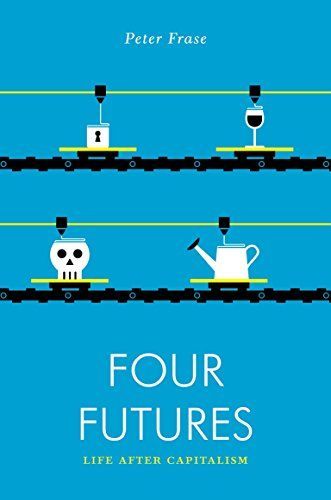
Four Futures Visions of the World After Capitalism
“It is easier to imagine the end of the world,” the theorist Fredric Jameson has remarked, “than to imagine the end of capitalism.”Jacobin Editor Peter Frase argues that technological advancements and environmental threats will inevitably push our society beyond capitalism, andFour Futures imagines just how this might look. Extrapolating possible futures from current changes the world is now experiencing, and drawing upon speculative fictions to illustrate how these futures might be realized, Four Futures examines communism, rentism, socialism, and exterminism – or in other words, the socialisms we may reach if a resurgent Left is successful and the barbarisms we may be consigned to if those movements fail.
Reviews
chris@pianogoth
Andrew Louis@hyfen
Katherine@katebugs
Nicholas Hanemann@nick_h
Sophie Shrimpton@sinta
Stephen Campbell@stephencampbll
César Steven Toribio@cesarsteven
Freso@freso
Nileena S B@neelippennu
Harry Marr@hmarr
Neta Steingart@neta_shin
ANDREW BRYK@andrewbryk
Celine Nguyen ✿@celinenguyen
Lauren@oceanvoices
Daniel Nieuwenhuizen@dan